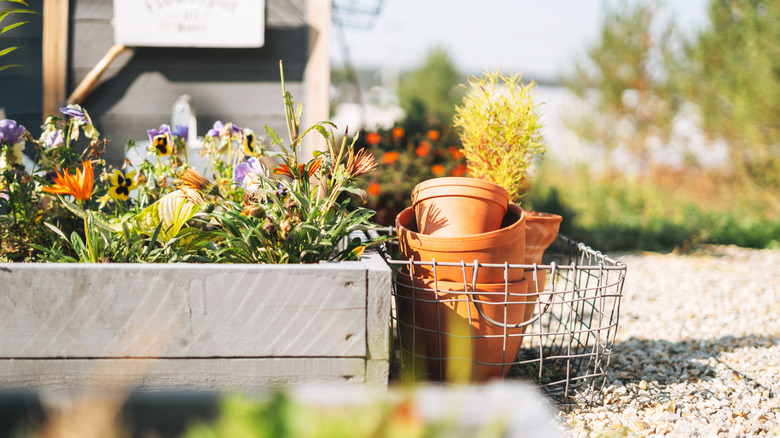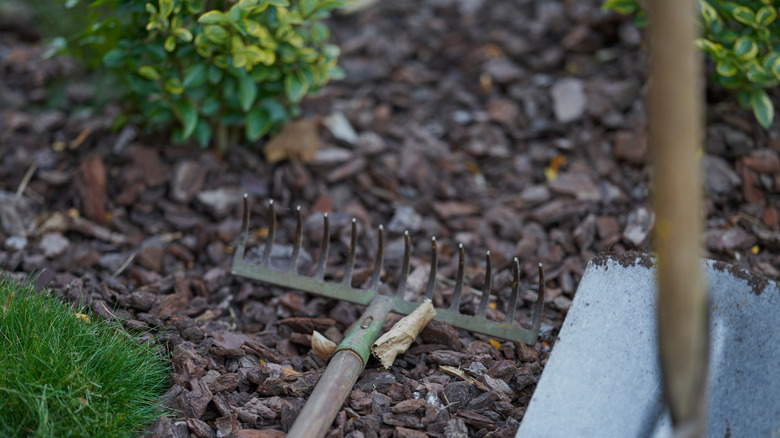How To Prepare Your Garden For Fall
When you notice it's getting darker earlier in the evening, and there's a chill in the air at night and in the early morning, you know summer is fading into fall. And for gardeners, that means it's time to start preparing their beds for the autumn crop. If you're a first-timer or still relatively new to gardening, you might be unsure what "preparing the garden for fall" even means and what steps you should take to ensure your autumn harvest is just as good as your summer's was. Food Republic spoke to Dusty Vauters, ATV sprayer manager at MidSouth, and he had plenty of guidance for novice gardeners.
"A lot of gardening is about maintaining a positive environment for growth," he said. But, "Fall soil prep is a little different from spring." He elaborated, describing how your first step should be pulling any plants that have died or become diseased to prevent the spread of anything bad lurking. But he also advised that birds need food and shelter throughout autumn and winter, so "leave seed heads or ornamental grasses."
Once you've cleared your garden of summer's detritus, Vauters then recommended topping off your beds with lots of compost (which, if you didn't make any yourself, you can buy at Costco). Doing this helps to "replenish nutrients used up by summer crops," he told us.
What to plant and how to care for your crops in fall
Some vegetables obviously grow better in cooler weather, prospering once the hot heat of summer dwindles away. "Late-summer plantings that thrive in fall include ... spinach, lettuce, arugula, radishes, carrots, beets, broccoli, garlic, and onions," Dusty Vauters shared with Food Republic. Another terrific vegetable you can grow that's great for beginners? Kale, one of the easiest and most prolific greens for your garden.
But Vauters doesn't just put the seeds or seedlings in the ground and leave them to their own devices. He always adds mulch on top of them, because it not only helps regulate the moisture and temperature of the soil (which keeps the fledgling roots insulated), it also helps suppress weeds. "Mulching gives plants a head start, helping roots grow strong before the first frost," he explained. Vauters also recommended watering deeply and consistently — but not too often, and not too much, as well as pulling any weeds that spring up (despite your mulch's best efforts), because they tend to compete with your vegetables for the soil's nutrients and moisture.


